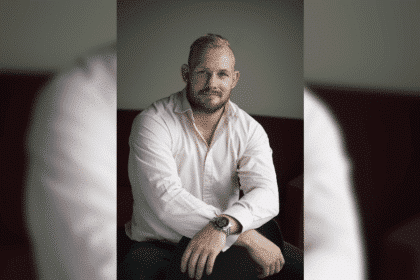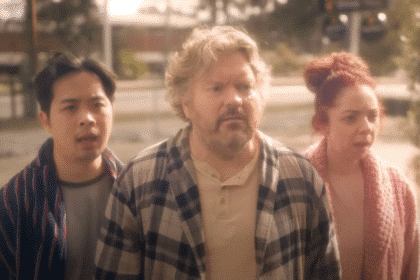In this opinion piece, Born’s co-founder and strategy director, David Coupland (above), considers whether cultural nostalgia offers genuine comfort or stifles innovation in light of McDonald’s bringing back “The Original Mouthful.”
Sitting there watching The Beckham documentary, shortly after I’d watched the Robbie Williams’ documentary, not that long after I’d watched The Last Dance it occurred to me that we are living in an era where culture appears to be feeding upon its own past more voraciously than ever (just look at the sheer volume of reboots of superhero franchises or the revival of old TV shows that dominate box office viewership).
And this tendency to feast on the past was once again illustrated this week by the recent relaunch of McDonald’s “iconic” 1987 Big Mac challenge.
Now, I’m not having a go, I love remembering stuff as much as the next person, but this constant invocation of nostalgia raises interesting questions about the trajectory of our cultural landscape.
This resurgence of reinvented past cultural touchstones is a symptom of what Fredric Jameson described as the “cultural logic of late capitalism,” where pastiche and nostalgia become dominant cultural forms. Jameson argued that postmodernism’s endless recycling of past styles reflects a new depth of commodification in our cultural fabric. Put another way: everything is for sale, even our memories.
Jean Baudrillard’s theory of simulacra also provides a lens through which to view this idea. Baudrillard posited that in the postmodern era, the melding of the past with the present leads to a “hyper-reality” where the cultural artefacts of today repurpose the aesthetics of the past, not to critique or innovate but to comfort and (with regards to marketing) capitalise through familiarity.
But is any of this bad? On one hand, it offers a sanctuary of familiarity in an era marked by rapid change and uncertainty. It’s nice to be reminded of a better time, especially when the reality of today can feel stark and difficult, and the future scary and unknown. This melding of past and present is also able to act as a bridge between generations when it can at times feel like we’re further away from each other than ever before.
However, there is an inherent risk in this cultural recursion. The overreliance on past cultures can stifle innovation, marginalise new voices, and create a sanitised, selective memory of history that glosses over less palatable truths. It also encourages a passive consumption of culture, where engagement is superficial and rooted more in nostalgia than in a critical interaction with content and its subject matter. In other words, we become lazy as consumers, and brands pander to this.
So what now? Well, if brands are the great storytellers of our time (as we believe), then there is a responsibility to tell stories that move culture forward, rather than simply anchor them in the past. To navigate this landscape, we must strive for a balance in our storytelling, where our appreciation for the past does not hinder the innovation of the future. Supporting new artists, new voices, and new stories, critically engaging with classic works to understand their contexts and biases, and embracing a thoughtful “remix culture” are all going to be important to avoid a stagnation of culture caused by excessive nostalgia.
VW did this very effectively with the launch of its ID. Buzz (beautifully expressed, with “old-school cool meets new-school fuel”) using the nostalgic, classic design as a literal and metaphorical vehicle to progress the conversation towards more sustainable vehicle choices. By reimagining this beloved model as an electric vehicle, Volkswagen leverages nostalgia while also framing the transition to electric vehicles as a natural evolution rather than a radical change. This approach makes electric vehicles feel more approachable, appealing to a broader audience by associating them with familiar and fondly remembered designs, rather than positioning them solely within the context of environmental activism or technological innovation.
And so as creators in this new hyper-postmodern, hyperreal cultural marketplace, our challenge is to ensure that our engagement with culture is always active and critical. When we look backward, it must be to do more than reminisce but to learn, using our history as a springboard for better stories, and genuine innovation and not just as a comfort blanket.
In conclusion, if I am able to draw one, it is that as we consider the implications of a culture that continually recycles itself, it is important to keep focused on cultivating an environment that values both heritage and innovation. By doing so, we can ensure that our cultural future is as rich and diverse as its past. Otherwise, we risk getting stuck on rewind, and if that ends up being the case, I’m not loving it.








